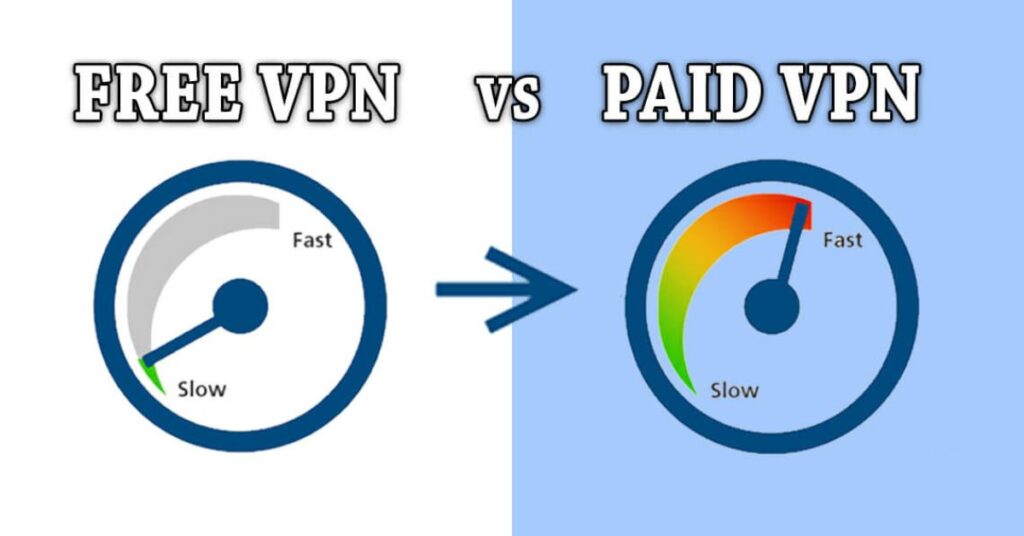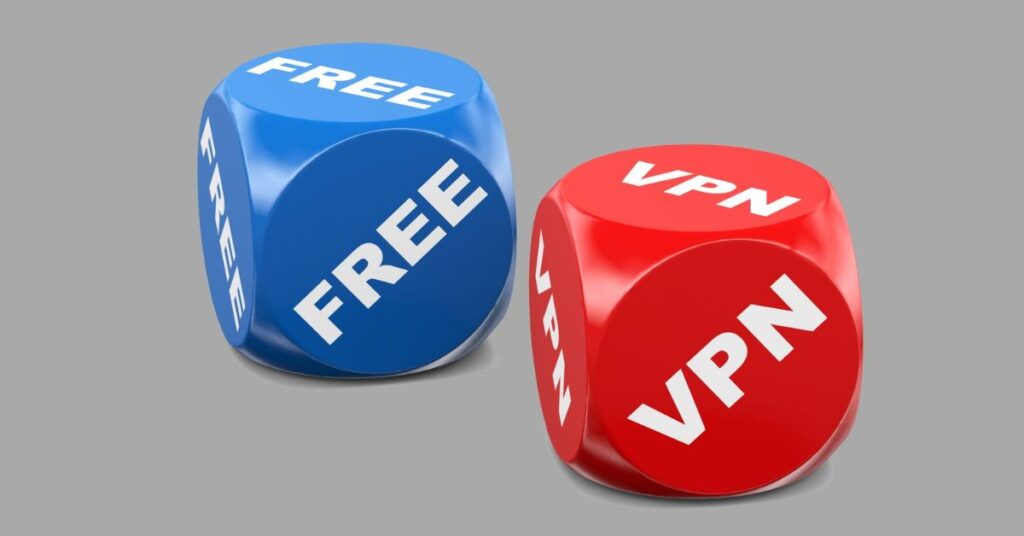In 2024 with our digital lives expanding online privacy is more crucial than ever. Enter the Virtual Private Network (VPN). A tool that shields your internet activity from prying eyes. Whether you’re working from a coffee shop or streaming your favorite shows. A VPN ensures your data stays secure. But with so many options out there, should you opt for a free VPN or invest in a paid one.
Between free and paid VPNs can be tricky. Free VPNs often lure users with no-cost protection, but they might come with hidden drawbacks. Paid VPNs, on the other hand, promise robust security and better performance but come at a cost. So you can make the right choice for your online safety in 2024.
The VPN Lowdown
You are sipping a latte at your favorite coffee shop, using their free Wi-Fi to catch up on work. Sounds harmless, right. Well, not quite. Public Wi-Fi is like a playground for cybercriminals. That’s where a VPN swoops in to save the day.
And making it nearly impossible for hackers, ISPs, or nosy governments to peek at your online activities. But here is the kicker: not all VPNs are created equal. Some are free, promising the moon and stars, while others come with a price tag. So, which one should you choose? Let’s break it down.
Security and Privacy
In the consistently creating automated scene, security and assurance have become focal concerns. As we navigate the web, our online activities are constantly at risk from hackers, ISPs, and even governments. Enter the Virtual Private Network (VPN), a tool designed to shield your internet traffic and maintain your privacy. But with so many options available, the choice between free and paid VPNs can be daunting.
Free VPNs promise protection without a cost, but they often come with hidden dangers, like weaker encryption and data logging. Paid VPNs, on the other hand, offer robust security features, such as advanced encryption and strict no-logs policies. This showdown between free and paid VPNs ultimately boils down to the level of security and privacy you require.
Free VPNs A False Sense of Security
Free VPNs might seem like a steal, but remember the old saying If you’re not paying for the product, you are the product. Many free VPNs have been caught with their hands in the cookie jar, selling user data to third parties. Yikes!
Some free VPNs use outdated encryption protocols, leaving your data about as secure as a house with screen doors. They might protect you from casual snoopers, but against determined hackers or government agencies? Not so much.
Paid VPNs Fort Knox for Your Data
On the flip side, paid VPNs are like the Navy SEALs of online security. They use top-notch encryption protocols like AES-256 (the same stuff used by the US government to protect classified information). Many also have a strict no-logs policy, meaning they don’t keep any record of your online activities.
“With a paid VPN, you’re not just buying a service; you’re investing in your online privacy and security.” – Cybersecurity Expert Jane Doe
Performance and Reliability
When it comes to VPNs, performance and reliability are critical factors that can make or break your online experience. A VPN should protect your data without slowing you down or causing frustrating interruptions. Imagine trying to stream your favorite show, but constant buffering ruins the experience. That’s where the difference between free and paid VPNs becomes evident.
Free VPNs often struggle with performance due to limited servers and overcrowded networks, leading to sluggish speeds and frequent disconnects. In contrast, paid VPNs typically offer robust infrastructure with numerous high-speed servers worldwide, ensuring a smooth, uninterrupted browsing experience. By choosing the right VPN, you can enjoy seamless online activities, whether you’re streaming, gaming, or working remotely.
Paid VPNs: Cruising Down the Information Superhighway
Paid VPNs, on the other hand, offer a smoother ride. They boast extensive server networks spread across the globe, ensuring you always have a fast connection nearby. Plus, they don’t skimp on bandwidth, allowing you to stream, game, and browse to your heart’s content.
Here’s a quick comparison:
| Feature | Free VPNs | Paid VPNs |
| Speed | Often slow | Generally fast |
| Data Caps | Common | Rare |
| Server Locations | Limited | Numerous |
| Bandwidth Throttling | Common | Rare |
Free VPN Pros and Cons
Let’s face it, free stuff is tempting. But when it comes to VPNs, is free really worth it?
Pros of Free VPNs:
- Cost: Obviously, they’re free. Great for the budget-conscious.
- Basic Protection: Offers some level of privacy for casual browsing.
- Ease of Use: Often simple to set up and use.
Cons of Free VPNs:
- Limited Security: Often use weaker encryption protocols.
- Data Selling: Many sell user data to third parties.
- Speed Issues: Slow connections due to overcrowded servers.
- Data Caps: Limited data usage per day or month.
- Fewer Features: Lack advanced features like split tunneling.
- Ads: Many free VPNs bombard you with ads.
Real-life Scenario The Free VPN Letdown

Meet Tom, a college student who decided to use a free VPN to stream geo-restricted content. At first, it seemed great. But soon, Tom noticed his connection slowing to a crawl. Worse, he started getting targeted ads based on his browsing history – something his VPN was supposed to prevent. Tom learned the hard way that in the world of VPNs, you often get what you pay for.
Paid VPN Pros and Cons
Now, let’s look at the other side of the coin. Are paid VPNs worth the investment?
Pros of Paid VPNs:
- Strong Security: Use top-tier encryption protocols.
- No-Logs Policy: Many don’t keep records of your online activities.
- Fast Speeds: Multiple servers ensure quick connections.
- Unlimited Data: No caps on your data usage.
- Advanced Features: Offer split tunneling, kill switches, etc.
- Customer Support: 24/7 support in case of issues.
Cons of Paid VPNs:
- Cost: You’ll need to budget for this service.
- Complexity: Some offer advanced features that might be overwhelming for newbies.
- Overkill: Casual users might not need all the bells and whistles.
Features and Functionality
When it comes to choosing a VPN, it is not just about security; it’s also about the bells and whistles. VPNs offer a range of features that can make your online experience smoother and safer. From split tunneling that lets you choose which apps use the VPN to ad and malware blocking for extra security.
These tools can customize your digital protection. Whether you’re a casual browser or a digital nomad, understanding these features can help you pick the VPN that fits your needs like a glove.
Free VPNs typically offer:
- Basic encryption
- Limited server locations
- Simple apps for major platforms
When Is a Free VPN Okay to Use?
Their drawbacks are that free VPNs aren’t all bad. They can be suitable in certain situations:
- Casual Browsing: If you just want to check emails on public Wi-Fi occasionally.
- Testing the Waters: To try out VPN functionality before committing to a paid service.
- Temporary Use: For short-term needs, like accessing region-locked content while traveling.
Always opt for reputable free VPNs. Some trustworthy options include:
- ProtonVPN’s free tier
- TunnelBear’s free version
- Windscribe’s limited free plan
These are still limited compared to their paid counterparts, but they’re safer than many other free options.
How to Choose the Best Paid VPN?

If you’ve decided to invest in a paid VPN . Here is what to look for:
- Strong Encryption: AES-256 is the gold standard.
- No-Logs Policy: Ensure they don’t keep records of your online activities.
- Server Network: More servers in diverse locations mean better performance.
- Speed: Look for VPNs that consistently perform well in speed tests.
- Device Compatibility: Make sure it works on all your devices.
- Customer Support: 24/7 live chat support is ideal.
- Advanced Features: Look for split tunneling, kill switch, etc.
- Price: Compare plans and look for money-back guarantees.
Pro Tip: Avoid “lifetime” VPN subscriptions. The VPN landscape changes rapidly, and these offers often seem too good to be true (because they usually are).
Conclusion
The choice between free and paid VPNs in 2024 hinges on your priorities and usage. While free VPNs offer basic protection at no cost. They often come with limitations like slower speeds, data caps, and potential privacy risks. Paid VPNs, on the other hand, provide robust security with advanced features like strong encryption.
No-logs policies, and faster, reliable connections across numerous servers worldwide. Investing in a paid VPN ensures not only enhanced privacy and security but also better performance for activities like streaming and gaming. your decision should align with the level of protection and functionality you require online.

